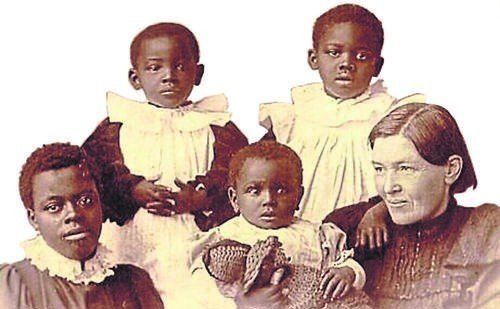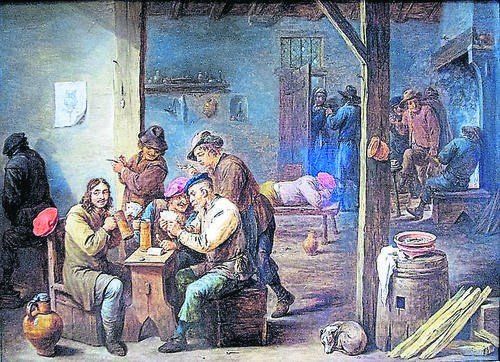
The three deadliest words in the world today are the words: ‘It’s a girl!’ Over 100 million females are missing in the world due to gender selective abortion, infanticide, or neglect. And that’s just one of many markers of female inequality.
Feminists are rightly outraged by this. If we ask what lay behind the rise of feminism the popular answer would be ‘a desire to see fair treatment for women’. It’s right to be angry when women are oppressed. Feminism raises the right questions.
All too often, it’s come up with the wrong answers. Blame men! Blame patriarchy! Blame the family! Blame religion! Blame God! But the oppression of women is not simply the fault of men. It’s a symptom of something deeper. It’s the result of sin.
God’s original design was for man and woman, created in his image, to cooperate in the great task of representing him on this earth. Their complementary qualities would help them together to manage and develop his good creation. In partnership they and their descendants were to fill the earth with others made in God’s image to join in that task.

Ever since the Fall into sin, Satan has attempted to wreck God’s good design. Throughout history the differences between men and women have often been overemphasised. They have been used to justify discrimination, segregation, lack of opportunity, forced marriages, wife-beating, rape, pornography and sex-trafficking.
Feminists are angry when they see these evils. God is infinitely more angry. Men and women alike – we all rebel against him. God will judge all evil – either in the person of his Son for those who repent – or at the Day of Judgment.
Many feminists truly believe that Christianity is bad news for women, and the Bible is a hate text, shot through with patriarchal assumptions. But is Christianity really bad news for women? Let’s pose three simple questions:

Question 1: Why did Christianity spread so fast in the early centuries?
Greek and Roman society was infused with the assumption that women were inferior. But not just women. It was socially acceptable for male freemen to use women, young men, children, slaves for their own gratification – the levels of sexual violence were indescribable.
At the time of Christ’s birth, male citizens in the Roman Empire enjoyed patria potestas. This was the absolute right of life and death over their wives and children (and slaves).
One of the reasons why Christianity spread so rapidly during the first three centuries was the dignity and worth it afforded to women.

In a culture where female infants were regularly exposed and killed, and fathers routinely gave away their daughters as child-brides, as Christianity spread, each of these abuses was outlawed. With the expansion of Christianity, an ethic of monogamy and fidelity prevailed as well, and many of the worst excesses of sexual exploitation were restrained.
The evidence is plain. The sexual slavery endemic in the ancient world was dispelled by the advance of Christianity. And it’s advancing again today – not because of Christianity – but fuelled by the global pornography industry, which Christians oppose.
Question 2: Where today is the oppression of women most prevalent?
Look at any of the countries where women are held back, forbidden an education, married off as children, subjected to systematic abuses such as honour killings and genital cutting. They are countries where Christianity is disallowed.
Consult the 2014 World Economic Forum rating of countries according to the status of women. Bottom of the list of 130 are fifteen countries which don’t allow the Bible to be taught.

Question 3: In the past and present, who has most sacrificially fought against the oppression of women?
When you consider the mission movement and the expansion of Christianity world-wide, one of the first indicators of Christian influence was the provision of education for girls as well as boys. Christian influence led to the outlawing of the burning of widows in India in 1829 and the outlawing of the binding of the feet of girls in China in 1912.
Over the centuries, those who have been willing to sacrifice their lives to try to protect women from abusive cultures, have been Christian missionaries.

Or look at the impact that revival has on communities. Whole communities in eighteenth century England were transformed by the Evangelical revival. Men who had previously been addicted to alcohol, violence, gambling and other behaviours destructive to family life were converted to biblical Christianity. It was their wives and children who benefited most.
As Christianity spread rapidly in Latin America, Asia, and Africa during the last century, the same thing happened. As poor women are converted and join the new evangelical churches, they are joining communities with a high view of the family, and an emphasis on male responsibility and fidelity.
It all adds up to a significant improvement in the lives of poor women, since this is where they are more likely to meet men who do not squander family resources on drinking, gambling, prostitutes, or even second households.

Bible believing Christians are at the forefront of the fight against female oppression in the hardest places on earth. In the poorest countries in Africa, Asia, and Latin America, the spread of evangelical Christianity has had a hugely positive impact of the lives of women.
Is Christianity really bad news for women? The evidence proves the opposite.
This is abbreviated from Chapter 1 of Sharon James’ new book God’s Design For Women in an Age of Gender Confusion (Evangelical Press). Next month we will continue with an article on ‘Feminism: Liberation or Betrayal?’
Dr Sharon James is a Christian author, speaker, and Social Policy Analyst at The Christian Institute.





